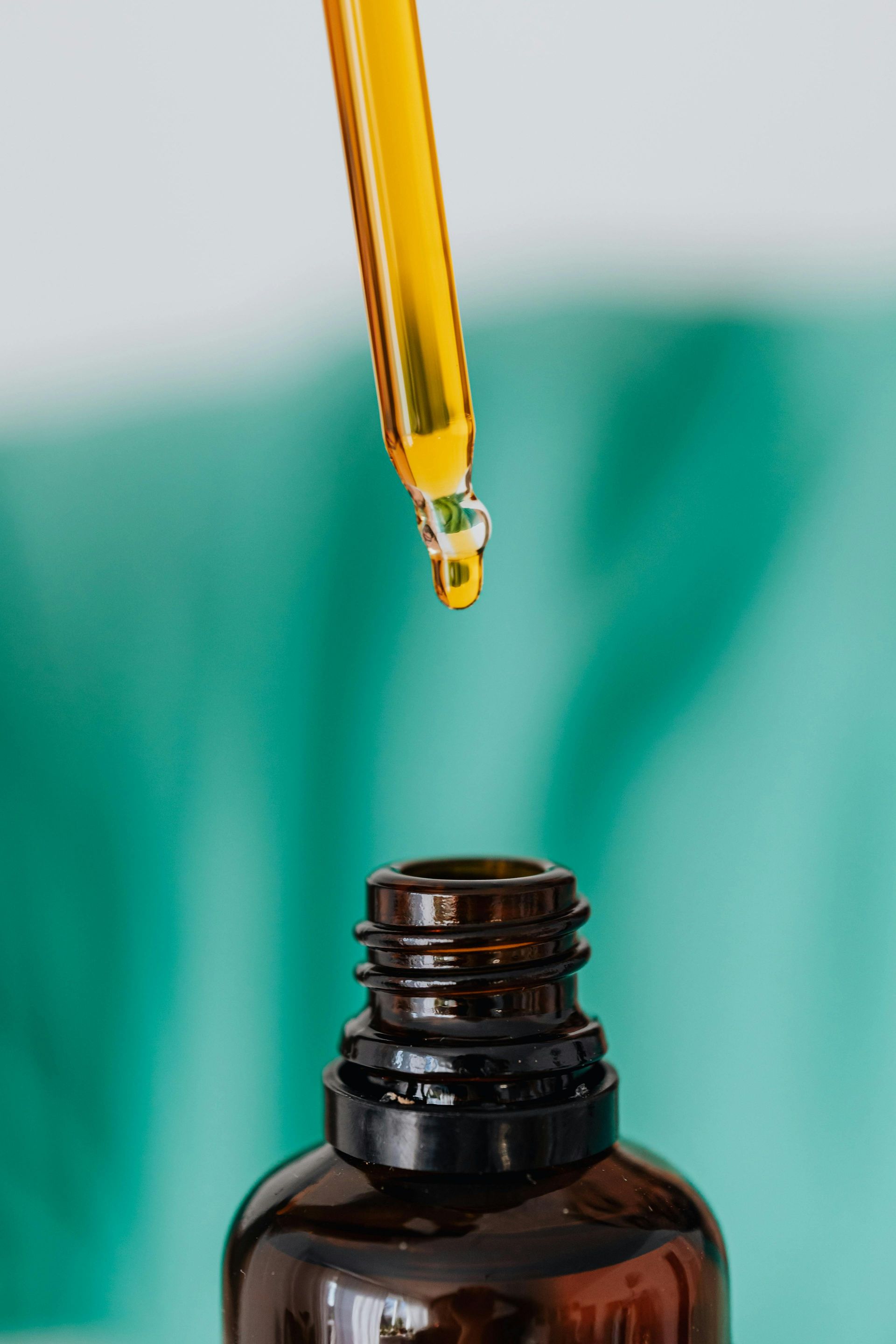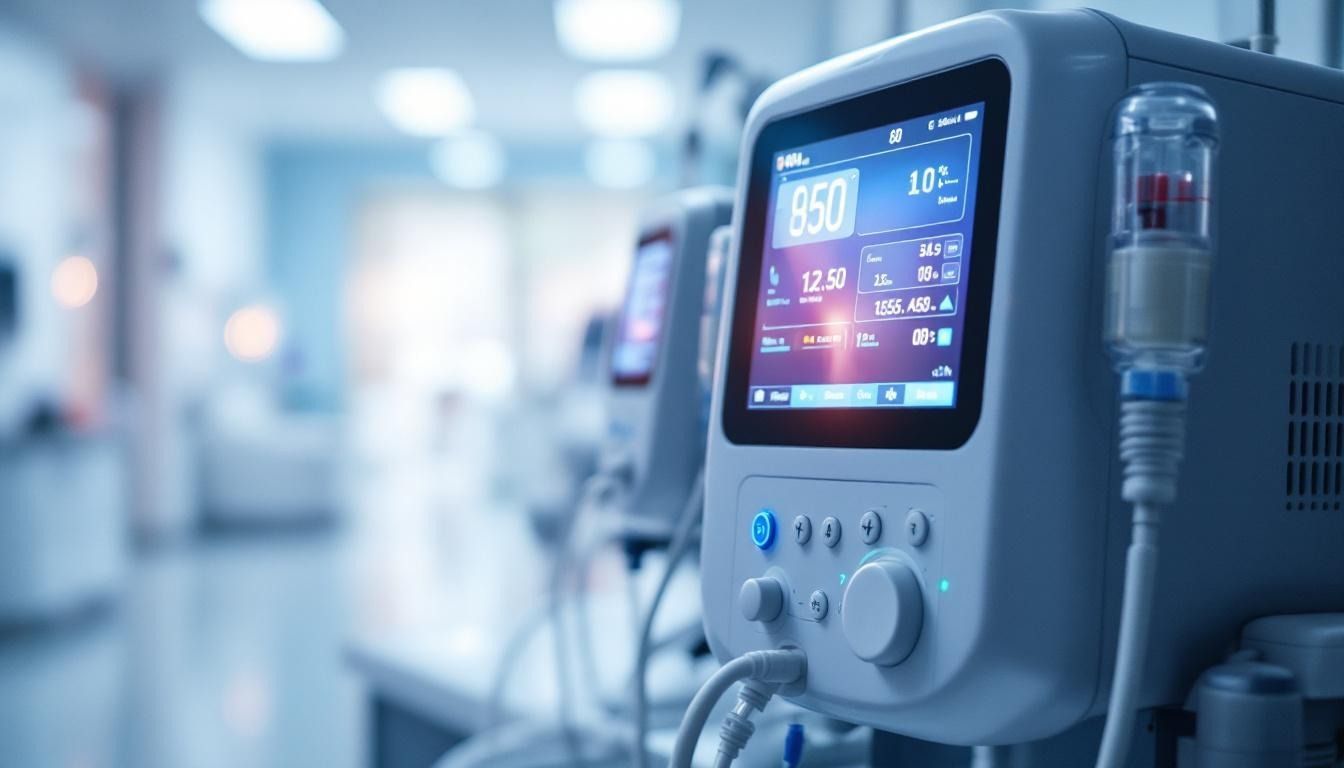Essential TPN nutrients for health
Introduction to TPN
Total Parenteral Nutrition (TPN) is an indispensable medical therapy designed to provide complete nutrition directly into the bloodstream for individuals unable to obtain adequate nutrition through conventional means. This therapy is pivotal for patients with compromised gastrointestinal function, necessitating a comprehensive mix of essential nutrients to maintain health and support recovery. This article delves into the critical nutrients involved in TPN and their significant roles in sustaining health, alongside the common medical conditions warranting such intervention and the potential risks involved.
What is Total Parenteral Nutrition (TPN)?
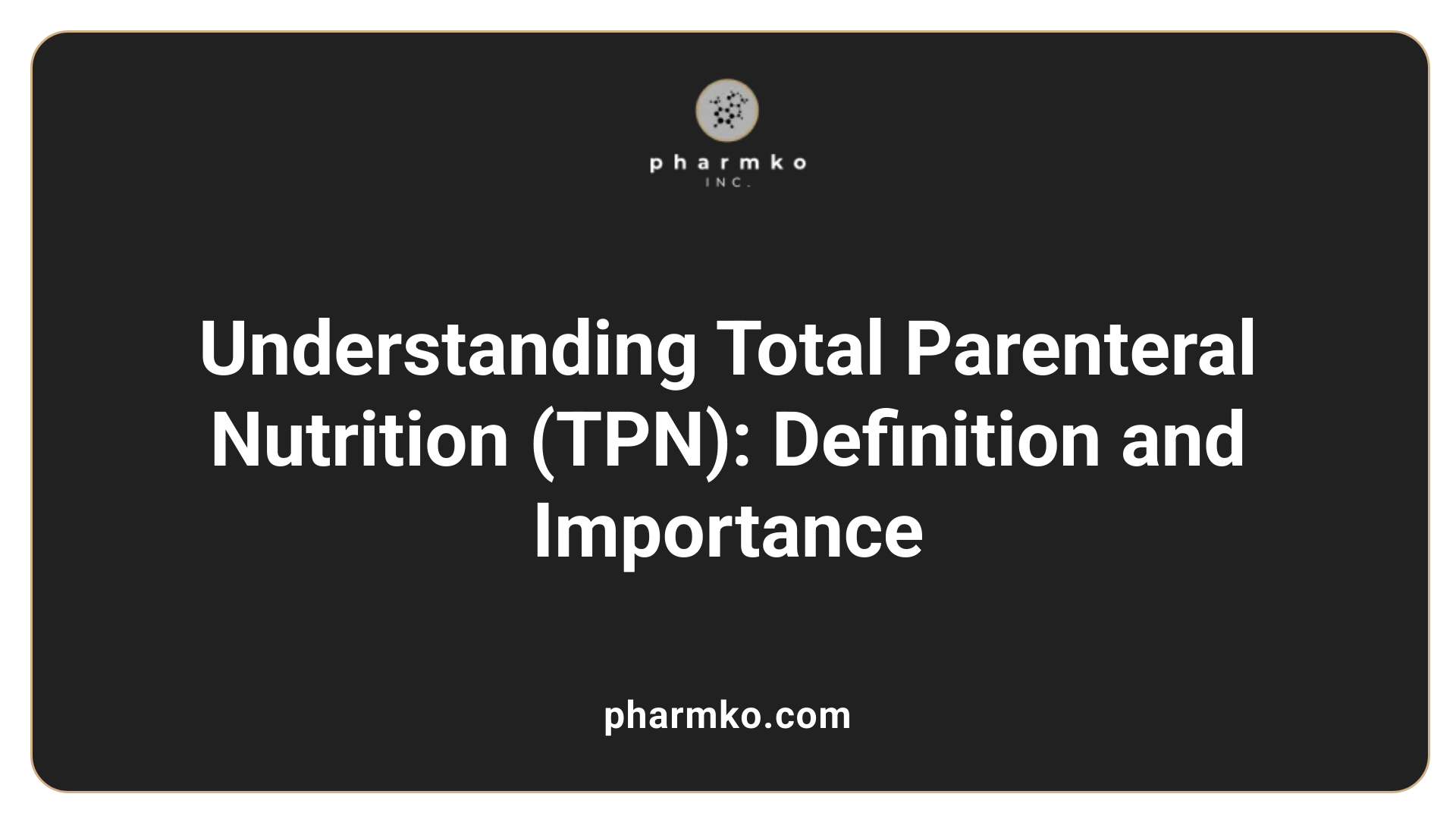
Definition of TPN
Total Parenteral Nutrition (TPN) is an advanced medical treatment that provides complete nutrition directly into the bloodstream through a central venous catheter. This method is crucial for individuals who cannot take food orally or those with significant gastrointestinal dysfunction that impedes nutrient absorption. TPN allows for the precise delivery of essential nutrients such as carbohydrates, proteins, fats, vitamins, and minerals, tailored to each patient's unique nutritional requirements.
Importance of TPN
TPN plays a vital role in managing and preventing malnutrition, especially in patients with conditions like Crohn’s disease, cancer, or severe pancreatitis. For those unable to maintain adequate nutrition through conventional dietary means, TPN facilitates recovery and supports the body’s healing processes. This therapy can significantly enhance hydration, energy levels, and strength, making it particularly beneficial for vulnerable populations such as children and teenagers to prevent growth delays.
Duration of TPN use
The duration of TPN therapy can vary dramatically based on individual health needs. It can be prescribed for short durations, such as during post-operative recovery, or for extended periods, dependent on ongoing medical conditions. Regular monitoring and adjustments to the TPN formulation are essential to mitigate risks of potential side effects, including nutrient imbalances and catheter-related infections, ensuring that the patient’s nutritional needs are consistently met.
Breakdown of TPN Components
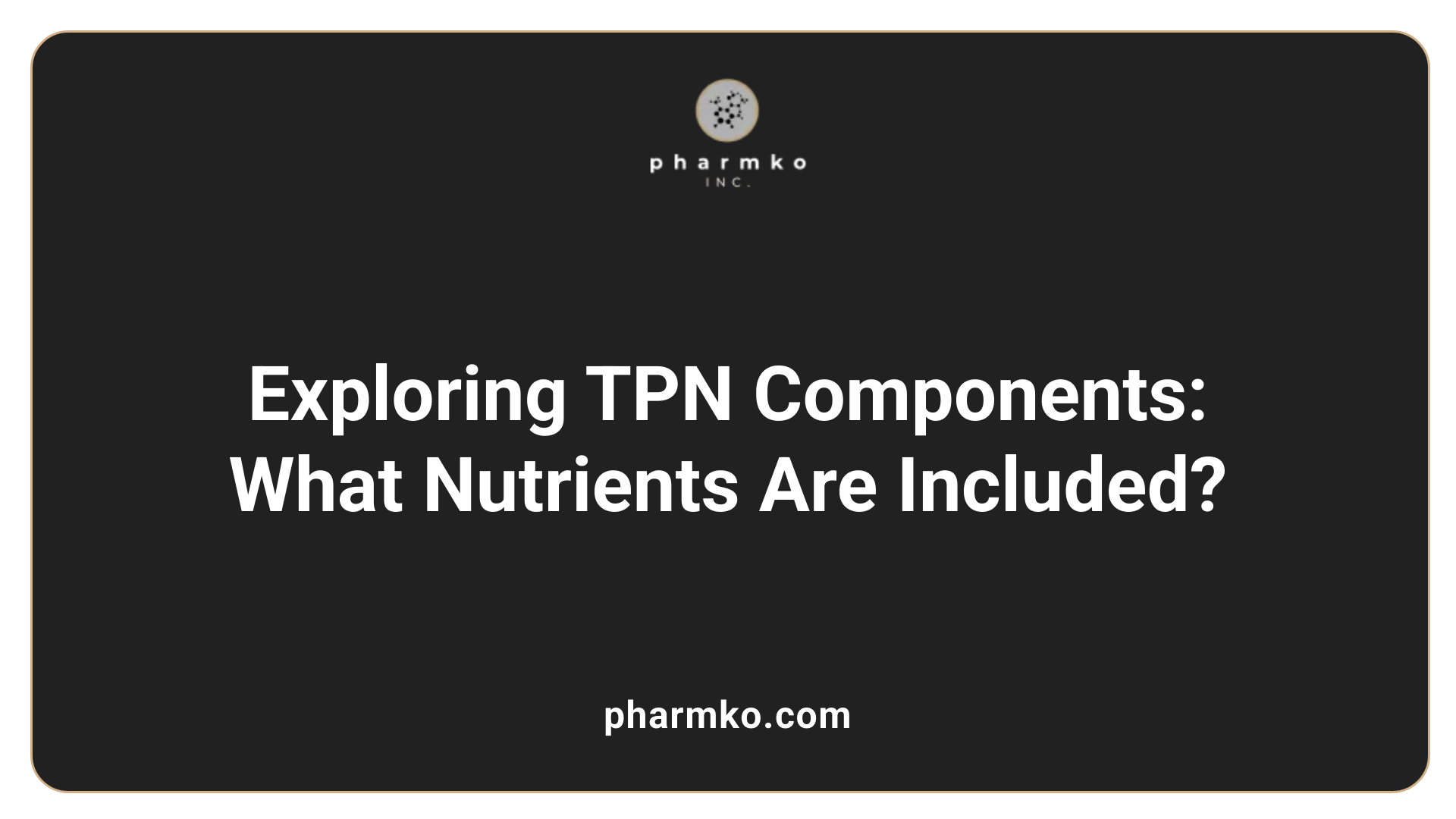
What are the components of TPN and their roles?
Total Parenteral Nutrition (TPN) is a life-sustaining form of therapy that delivers nutrients directly into the bloodstream. This method is essential for patients who cannot obtain adequate nutrition through oral routes due to conditions like Crohn's disease or cancer. TPN is composed of a variety of nutrients tailored to individual needs.
Macronutrients:
- Carbohydrates: The primary source of energy in TPN, carbohydrates come mainly in the form of dextrose. They are crucial for maintaining energy levels and supporting bodily functions.
- Proteins: Supplied as amino acids, proteins play a vital role in tissue repair, growth, and overall health. They help build and maintain muscle mass, which is crucial for recovering patients.
- Fats: Lipid emulsions provide not only a source of energy but also essential fatty acids. These fats are important for organ protection and enhance the absorption of fat-soluble vitamins.
Micronutrients:
- Vitamins and Trace Elements: Essential for maintaining metabolic functions, TPN includes a comprehensive range of vitamins (A, C, D, E, K) and trace minerals like zinc and selenium. These components ensure that patients meet their daily nutritional requirements.
- Electrolytes: Key electrolytes such as sodium, potassium, calcium, and magnesium are included to support hydration and nerve function. These need careful monitoring to avoid imbalances.
In summary, TPN is a complex formulation that is customized for each patient, ensuring they receive balanced nutrition intravenously. This therapy correctly addresses malnourishment and moisture needs, playing a critical role in recovery and overall health.
Medical Indications for TPN
In which medical conditions is TPN typically indicated?
Total parenteral nutrition (TPN) is crucial in the management of a variety of medical conditions that impair nutrient absorption. Here are some notable examples:
- Severe gastrointestinal diseases : This category includes conditions like short bowel syndrome and inflammatory bowel diseases, where the digestive tract cannot adequately process food.
- Bowel obstructions : TPN is often necessary for individuals who cannot keep food down due to bowel blockages, making oral or enteral feeding impossible.
- Post-surgical recovery : After major abdominal surgeries, patients may be temporarily unable to eat or assimilate nutrients, prompting the use of TPN.
- Intestinal ischemia : This condition reduces blood flow to the intestines, compromising nutrient absorption and necessitating parenteral nutrition.
- Malignancies : Cancer patients undergoing chemotherapy may face appetite loss or gastrointestinal complications, making TPN an important option.
- Prolonged gastrointestinal dysfunction : Conditions such as intestinal pseudo-obstruction or necrotizing enterocolitis can hinder the digestive process, leading to nutrient deficiencies that TPN aims to correct.
- Neonatal care : In newborns with congenital gastrointestinal anomalies, TPN ensures adequate nutrition until their digestive systems can function normally.
The principal aim of TPN is to provide complete nutrition for those unable to utilize their gastrointestinal tract effectively due to these severe medical conditions.
Administration and Potential Complications of TPN
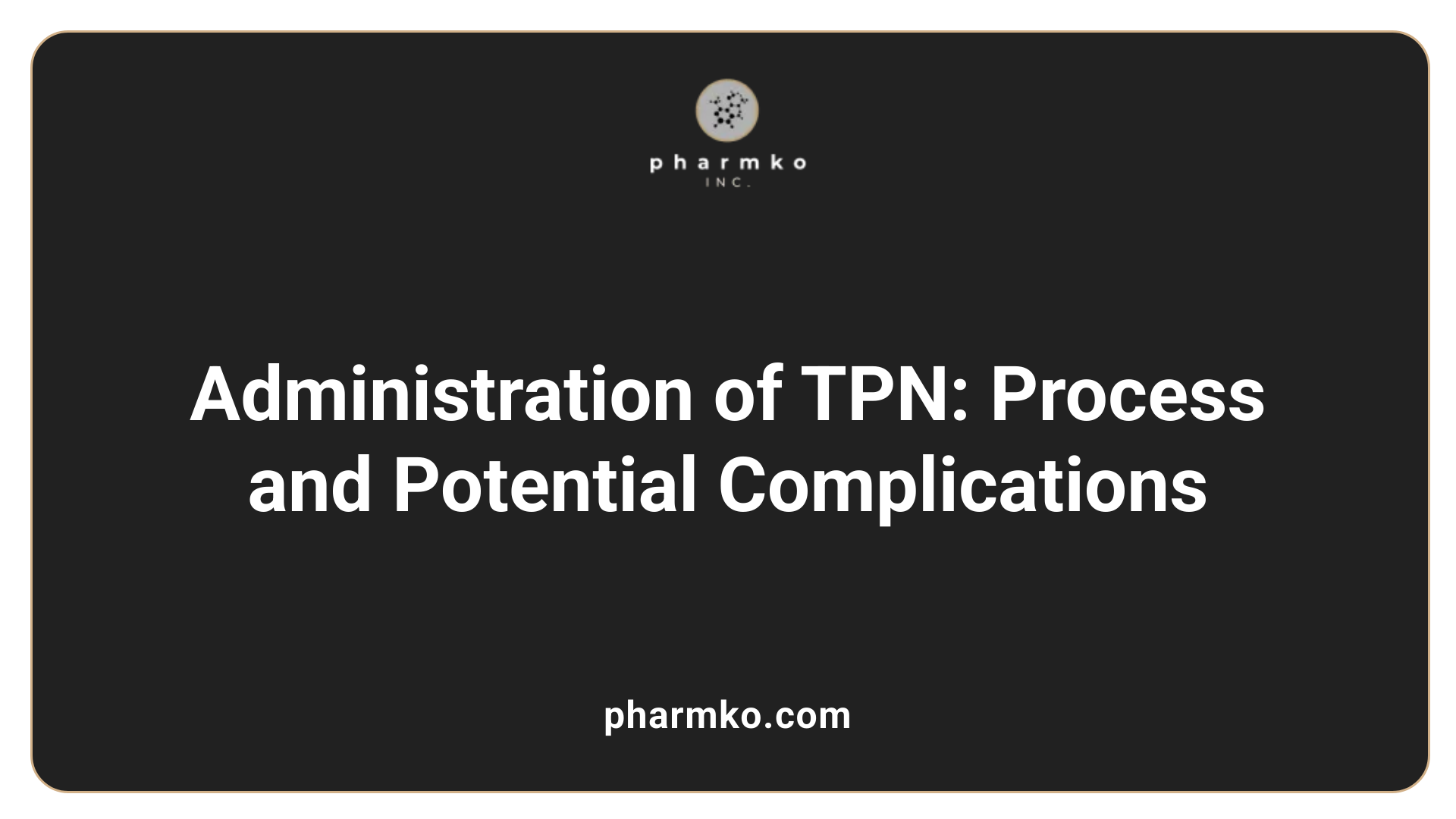
How is TPN administered, and what are potential complications?
Total Parenteral Nutrition (TPN) is administered intravenously through a central venous catheter. This method allows for the direct delivery of vital nutrients into the bloodstream, effectively bypassing the gastrointestinal tract. TPN includes a blend of macronutrients—carbohydrates, proteins, and fats—along with micronutrients such as vitamins, minerals, and electrolytes.
The administration process can be intricate. Healthcare providers must assess the patient’s nutritional needs meticulously and adjust the TPN formulation accordingly. Routine blood tests help ensure that nutrient levels stay balanced and that the patient remains hydrated.
While TPN is essential for those with impaired gastrointestinal function, it does come with potential complications:
- Infections: Central line-associated bloodstream infections are a significant risk due to the indwelling catheter.
- Thrombosis: This refers to blood clots that can occur in the central veins because of the catheter.
- Metabolic abnormalities: Issues such as hyperglycemia and electrolyte imbalances may arise, affecting overall health.
- Liver dysfunction: Long-term TPN use can lead to hepatic steatosis and cholestasis.
- Metabolic bone diseases: Prolonged reliance on TPN has been associated with conditions affecting bone health.
Monitoring protocols play a crucial role in managing these complications. Effective oversight can help mitigate risks such as dehydration, fluid overload, and refeeding syndrome. Therefore, continuous evaluation and prompt adjustments are vital for the safety and efficacy of TPN therapy.
Monitoring and Ensuring Effective TPN Therapy
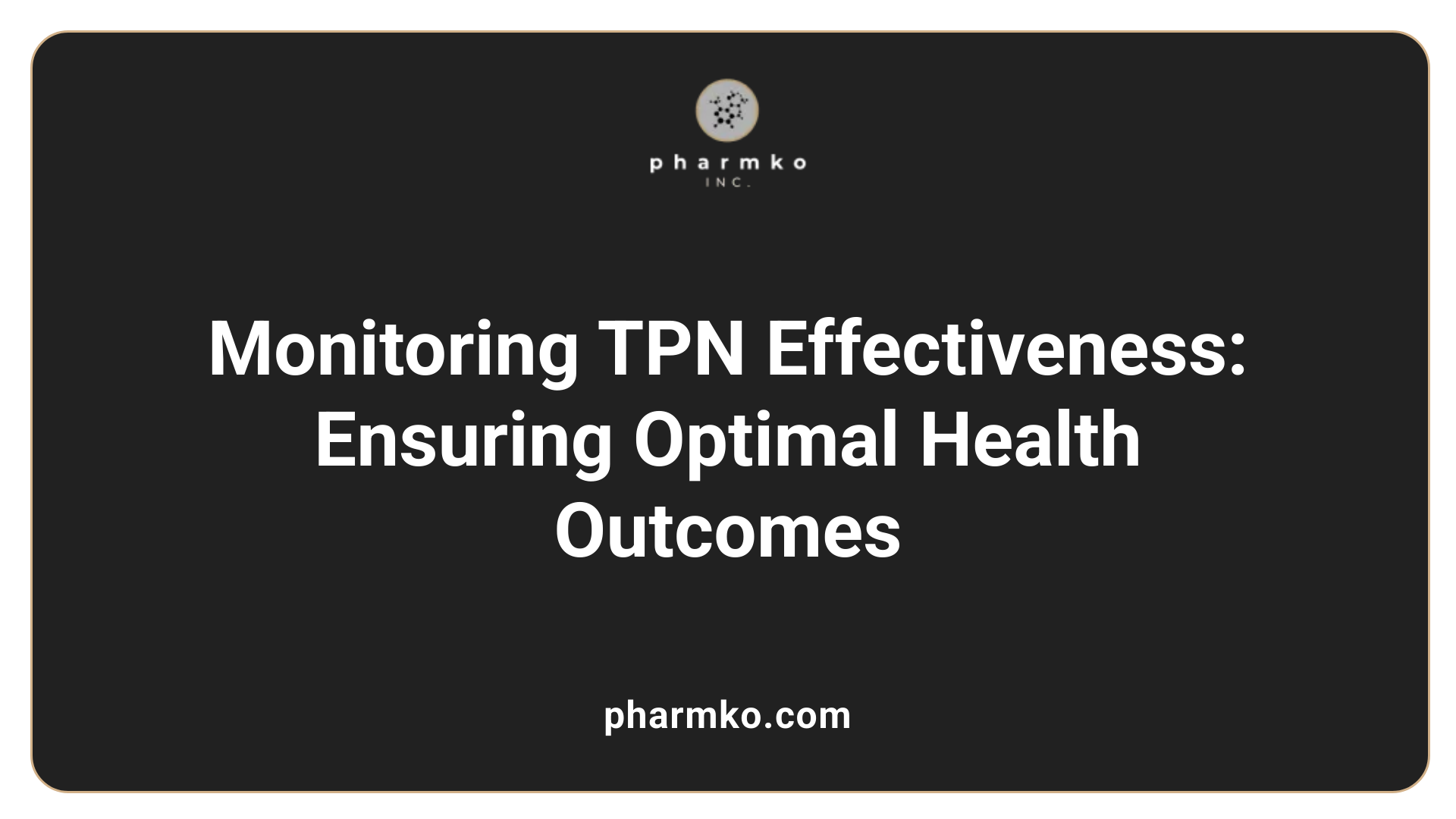
How is the effectiveness of TPN monitored to ensure health outcomes?
Monitoring the effectiveness of Total Parenteral Nutrition (TPN) is a crucial aspect of patient care. It involves a collaborative approach among healthcare professionals, including doctors, nurses, dietitians, and pharmacists. One of the primary methods for evaluating TPN effectiveness is through routine blood tests. These tests assess critical parameters such as:
- Electrolyte levels : Vital for organ function.
- Liver function : To detect any dysfunction early on.
- Metabolic parameters : These ensure the patient is absorbing and utilizing nutrients appropriately.
For unstable patients, daily reviews are essential, while stable patients may require assessments less frequently. In addition to blood tests, nutritional status is assessed through:
- Anthropometric measurements : Weight, height, Body Mass Index (BMI), and grip strength help determine body composition and nutritional needs.
- Biochemical assessments : Evaluating serum proteins and other markers aids in monitoring nutritional status.
Attention is also directed toward complications that can arise from TPN, such as refeeding syndrome , hyperglycemia , and infections . Monitoring vital signs and laboratory results is necessary to identify and address these issues early.
What strategies ensure positive health outcomes during TPN?
To optimize health outcomes during TPN therapy, several strategies can be employed:
- Customized Nutritional Plans : Tailoring the TPN formula to meet the specific needs of the patient guarantees they receive adequate nutrients based on their condition.
- Regular Monitoring : Frequent assessments through blood tests and physical evaluations help in making timely adjustments to the TPN regimen.
- Interdisciplinary Collaboration : Maintaining open communication among all team members allows for a holistic approach to patient care and rapid response to potential complications.
- Patient Education : Informing patients about the purpose and process of TPN empowers them and encourages adherence to prescribed nutritional plans.
These strategies help in addressing individual health challenges effectively, paving the way for improved recovery and overall well-being while on TPN.
The Role of Macronutrients in TPN
Macronutrients in TPN
Total Parenteral Nutrition (TPN) is structured around three main macronutrients: carbohydrates, proteins, and fats. Each of these components is essential for the health and recovery of patients who cannot take in nutrition through traditional means due to gastrointestinal dysfunction or other serious health conditions.
- Carbohydrates : Primarily delivered in the form of dextrose, carbohydrates form the main energy source in TPN. They are crucial for maintaining metabolic functions and allowing the body to operate efficiently.
- Proteins : Supplied as amino acids, proteins are vital for building and repairing tissues. They play a significant role in promoting healing, especially in malnourished patients or those recovering from surgery.
- Fats : Lipids in TPN provide essential fatty acids, which contribute to energy, protect organs, and aid in the absorption of fat-soluble vitamins.
Energy Provision and Function
The integration of these macronutrients in TPN is designed to meet the specific energy and nutritional needs of patients. The energy obtained from these nutrients supports various bodily functions, enhances the healing process, and mitigates the risk of malnutrition during periods when oral intake is not feasible.
In summary, the coordinated use of carbohydrates, proteins, and fats in TPN is fundamental in sustaining life and promoting recovery in individuals with impaired nutritional intake abilities. This composition ensures that patients receive a balanced supply of nutrients vital for their overall health and recovery.
Vitamins and Minerals: Small Yet Crucial
Why are vitamins and minerals included in TPN solutions?
Vitamins and minerals in TPN are essential to mimic the intake that a balanced diet would provide, supporting critical biochemical processes. They play significant roles in metabolic functions and overall health maintenance.
Vitamins such as A, B, C, D, E, and K, are integral for regulating various bodily processes. For instance:
- Vitamin A : Supports vision and immune functions.
- Vitamin B : Aids in energy production and red blood cell formation.
- Vitamin C : Essential for skin health and antioxidant properties.
- Vitamin D : Supports calcium absorption for bone health.
- Vitamin E : Acts as an antioxidant protecting cells from damage.
- Vitamin K : Important for blood clotting and bone health.
Trace elements like zinc, copper, and selenium are also included. They are critical for functions like immune response and antioxidant defense.
Despite being required in smaller amounts compared to macronutrients, their absence can lead to deficiencies. This can affect growth, metabolism, and tissue repair, which is particularly important during recovery or for those with impaired nutrient absorption.
The role of vitamins and minerals in TPN therapy
In TPN therapy, vitamins and minerals not only correct or prevent deficiencies but also aid in healing and recovery processes. The infusion of these micronutrients ensures that even when patients are unable to eat, they receive essential support that aids bodily functions.
The TPN solution is carefully formulated to include the recommended daily values for these nutrients, adjusting doses based on individual patient needs. This tailored approach helps minimize risks associated with nutrient imbalances, thereby enhancing patient care and recovery outcomes. By ensuring these small yet vital components are present, TPN plays a crucial role in supporting patients who are facing significant health challenges.
Electrolytes in TPN: Keeping Balance
Importance of electrolytes
Electrolytes play a pivotal role in Total Parenteral Nutrition (TPN). They are essential for maintaining various physiological functions and biochemical balances within the body. Key electrolytes like sodium, potassium, calcium, magnesium, and phosphorus are involved in vital processes such as:
- Muscle contraction : Helping muscles function properly.
- Nerve signaling : Ensuring effective communication between nerve cells.
- Bone health : Supporting structural integrity and function.
- Fluid balance : Regulating hydration levels in the body.
When delivered through TPN, precise electrolyte levels are crucial to avoid both deficiencies and excesses, which can lead to serious complications. In managing TPN, health professionals continuously monitor these levels and adjust accordingly based on the individual’s needs.
Electrolyte values in TPN
The recommended electrolyte values included per liter of TPN are expertly calculated to support patient health. Here’s a breakdown of the suggested ranges:
| Electrolyte | Recommended Level (mEq/L) | Function |
|---|---|---|
| Sodium | 100 to 150 | Maintains fluid balance and nerve function |
| Potassium | 50 to 100 | Crucial for heart and muscle function |
| Calcium | 10 to 20 | Essential for bone health and muscle function |
| Magnesium | 8 to 24 | Supports enzyme function and muscle relaxation |
| Phosphorus | 15 to 30 | Important for energy transfer and bone health |
This careful calibration is essential for sustaining overall health and well-being in patients undergoing TPN therapy.
TPN in Various Patient Populations
How does TPN benefit different patient groups?
Total parenteral nutrition (TPN) offers significant benefits to various patient populations, particularly those who face challenges in obtaining necessary nutrients through traditional means.
-
Malnourished Individuals:
- TPN plays a critical role in correcting nutritional deficits and restoring health.
- Direct delivery into the bloodstream enables quicker assimilation of nutrients, which is vital for health recovery.
-
Children and Teenagers:
- For younger patients, TPN can prevent growth delays associated with malnutrition.
- Customized solutions ensure they receive adequate nutrition to support their developmental needs.
-
Patients Recovering from Surgery or Illness:
- TPN is particularly advantageous for those recovering from major surgeries or battling severe gastrointestinal conditions.
- It enhances hydration, maintains energy levels, and supports faster healing processes.
Patient-specific TPN adjustments
To maximize the efficacy of TPN treatment, adjustments are often made based on individual patient needs. For example:
- Macronutrient Ratios: Tailoring the balance of carbohydrates, proteins, and lipids according to a patient's metabolic demands can improve nutritional outcomes.
- Fluid and Electrolyte Management: Adjustments are made based on routine blood tests to ensure hydration levels and electrolyte balance are maintained.
This patient-centric approach not only addresses the specific health conditions but also minimizes risks associated with nutrient imbalances, ultimately enhancing recovery and overall wellness.
Guidelines for Effective TPN Use
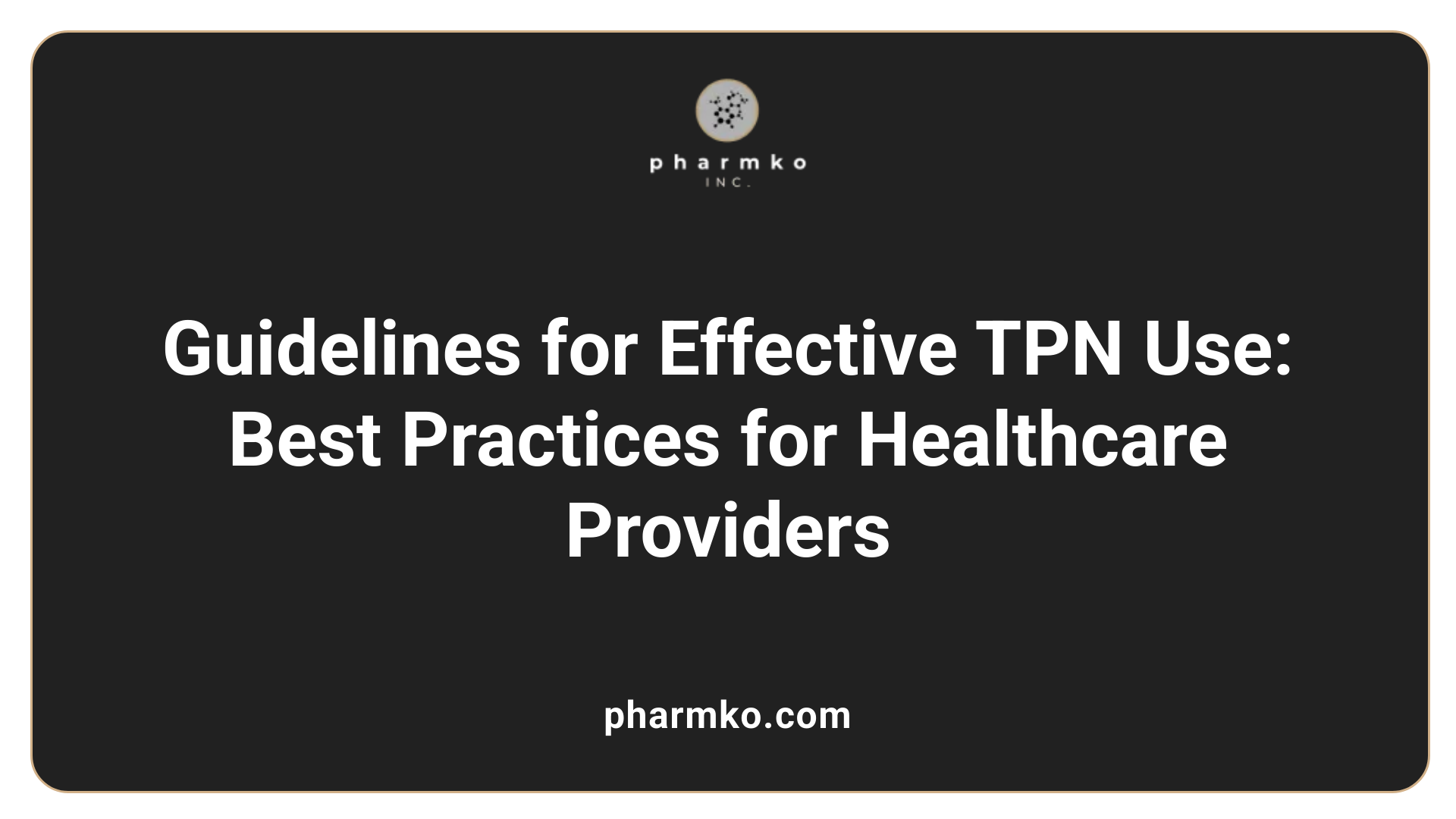
What guidelines exist for optimizing TPN use?
Effective Total Parenteral Nutrition (TPN) therapy requires adherence to clinical guidelines that focus on individualized patient assessment, precise nutrient formulation, and thorough monitoring. Here are the essential elements of these guidelines:
-
Individual Patient Assessment
- Evaluate the patient's nutritional status, underlying medical conditions, and specific dietary needs.
-
Nutrient Formulation
- Calculate the patient's total daily caloric and protein requirements.
- Tailor the TPN formula to include the right balance of macronutrients: carbohydrates (dextrose), proteins (amino acids), and lipids (fat emulsions).
-
Monitoring and Adjustment
- Implement regular blood tests to monitor electrolytes, liver function, and overall nutrient balance.
- Adjust TPN formulas as needed based on these monitoring results to prevent deficiencies or imbalances.
-
Safe Administration
- Ensure safe delivery by using central venous catheters and aseptic techniques to reduce infection risks.
-
Education and Training
- Provide continuous education for healthcare providers on TPN protocols and best practices to enhance patient care and outcomes.
Adhering to these structured guidelines ensures that patients receive optimal nutritional support, reduces potential complications, and enhances overall health and recovery outcomes. Regular training and awareness among healthcare providers are also emphasized to maintain best practices in TPN administration.
Recognizing and Managing TPN Complications
Identifiable TPN complications
Total parenteral nutrition (TPN) can lead to various complications that necessitate careful monitoring. Common issues include:
- Catheter-related infections: Occur when bacteria infect the site of the central venous catheter used for TPN.
- Liver dysfunction: Prolonged use of TPN can cause liver complications due to the composition of the formula.
- Nutrient imbalances: Patients may experience deficiencies or excesses of certain vitamins and minerals.
- Metabolic abnormalities: Fluctuations in blood glucose and electrolyte levels may arise, disrupting body functions.
How can complications of TPN be effectively managed?
Complications associated with TPN, such as catheter-related infections, liver dysfunction, and nutrient imbalances, require vigilant monitoring and management. Prompt recognition involves routine laboratory tests, clinical assessments, and surveillance for infection or metabolic changes.
- Adjustment of nutrient compositions: Tailoring TPN formulas to individual needs can help alleviate metabolic disturbances.
- Maintaining sterile techniques: Strict adherence to hygiene protocols at catheter sites prevents infections.
- Swift intervention: Addressing any emerging health concerns promptly through medical consultation is crucial.
A proactive approach integrating these strategies mitigates complications and secures effective nutrition delivery, ensuring patients can benefit from TPN without severe side effects.
| Complication | Monitoring required | Management strategies |
|---|---|---|
| Catheter-related infections | Routine site inspection and blood cultures | Use of sterile techniques, early antibiotic treatment |
| Liver dysfunction | Regular liver function tests | Diet adjustments, consideration of lipid composition |
| Nutrient imbalances | Frequent blood tests and nutrient levels monitoring | Adjust nutrient ratios or supplement missing elements |
Conclusion
Total Parenteral Nutrition (TPN) stands as a cornerstone therapy in medical nutrition for patients unable to eat or absorb nutrients via conventional routes. Its intricate balance of macronutrients, micronutrients, and other essentials sustains life and promotes health under challenging medical conditions. Despite its life-saving potential, TPN involves complex therapy regimens requiring careful monitoring to optimize patient outcomes and mitigate risks. As healthcare advances, understanding and implementing the principles of TPN more effectively contributes to the well-being and recovery of susceptible patient populations.
References
- Total Parenteral Nutrition - StatPearls
- Total Parenteral Nutrition: Home Care Guide
- Parenteral Nutrition Overview - PMC
- Understanding Total Parenteral Nutrition for Optimal Health
- Parenteral Nutrition: What it Is, Types, and More
- A Complete Guide to TPN Therapy
- Home parenteral nutrition
- Parenteral Nutrition Monitoring



